Technical Reports Environment
This page lists technical reports of PIARC in the field of environment. These publications are classified chronologically.
-
Mainstreaming Biodiversity within Road Infrastructure Projects - A PIARC Technical Report
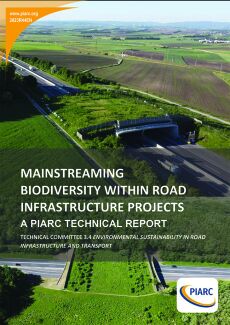
The development of transport infrastructure is one of the basic elements of the development of countries and their economies. Economic development is often accompanied by environmental protection problems, including biodiversity impacts, because they have not been taken enough into account. Preventing land fragmentation, preserving biodiversity and continuity of ecological corridors is one of the most important challenges for transport infrastructure stakeholders. The report is a global guide for [...]
-
Low Emission Zones – Planning and Implementation - A PIARC Briefing Note
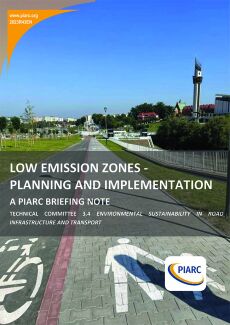
Air pollution problems are often observed in the roadside areas of metropolitan regions, where a lot of emission sources such as factories, business offices, residential houses and vehicles accumulate. Increasing congestion in cities with no or limited restrictions on driving in urban areas is contributing to a number of social- and health-related problems. Many countries are considering various types of restrictions on car traffic – especially in urban centers. The fastest-growing scheme since [...]
-
Near Road Air Quality - A PIARC Briefing Note
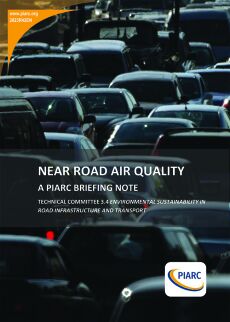
“Air pollution problems are often observed in the roadside areas of metropolitan regions, where a lot of emission sources such as factories, business offices, residential houses and vehicles accumulate. Such air pollutions are caused by emissions of SO2, NO2, CO, HC, PM10, PM2.5 etc. which are designated as air pollutants in most countries across the world. In order to carry out air pollution abatement measures, we have long-term evaluation values and short-term evaluation values as regulation [...]
-
PIARC International Climate Change Adaptation Framework 2023 – Technical Report
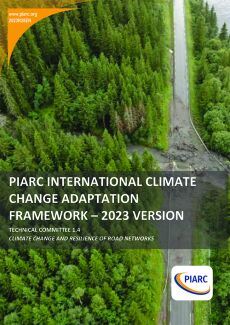
Climate change is a strategic risk to road organisations. Global climate change projections show that there will be gradual changes to average climatic conditions, and changes to the frequency, severity and location of extreme weather events. These climate changes are anticipated to have significant impacts on the design, construction, operation, maintenance and use of global road and transport infrastructure. This is why adaptation principles to address these climate hazard-induced impacts are [...]
-
Climate Change, Resilience and Disaster Management for Roads - Seminar
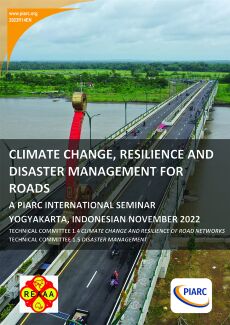
Climate change and other hazards have a wide range of implications on the performance of road infrastructure and can cause disruptions to road network operations. For example, extreme rainfall influences the intensity beyond the drainage capacity of roadways, resulting in slope collapses and landslides as well as traffic disruption. These traffic disruptions will lead to an increase in traffic accidents and restrictions. On the other hand, disasters cause significant loss of life each year throughout [...]